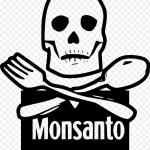A good example of Stanford's embrace of radical, anti-scientific views was the university’s invitation in 2020 to notorious charlatan Vandana Shiva to present the prestigious
GMO
Public trust in media is near an all-time low.
Almost three decades ago, activist groups began making all sorts of troubling predictions about the dangers of growing genetically engineered (GE) crops.
People often take drastic steps when they're hungry. Sri Lanka's leadership discovered this firsthand after it banned imports of synthetic fertilizers and pesticides last year.
Politicians have a complicated relationship with science. When they think the evidence comports with their political goals, they love scientists and the work that they do.
One of the best ways to sustain your bad ideas is to surround yourself with people who think just as you do. Like a cult member who only associates with other true believers, you're effectively cut off from outside scrutiny.
Join ACSH directors of bio-sciences and medicine Cameron English and Dr. Chuck Dinerstein as they break down these stories on episode 12 of the Science Dispatch podcast:
As summer grinds on, the Non-GMO Project is here to reassure consumers that seedless watermelon is not genetically modified. “Are those watermelons a GMO?
Sri Lanka ran an evil experiment on its citizens last year.
For more than two decades, anti-GMO groups have resorted to the same dishonest claims about the risks of genetically engineered crops.












